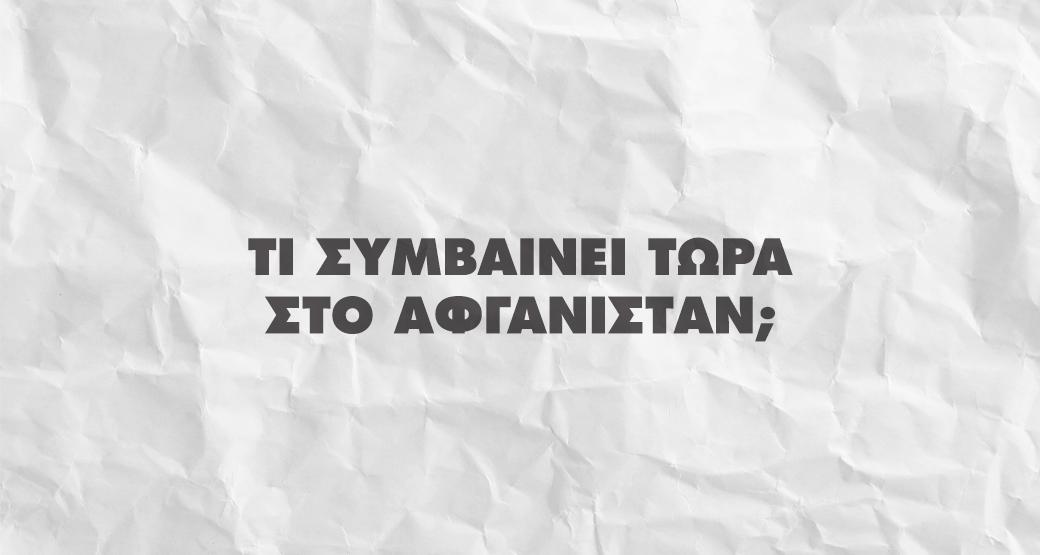The one with what’s happening in Afghanistan today
A country that has almost always been at war under hardships and on the verge of poverty. That's how we got to know Afghanistan just before the glamorous millennium that was entering the rest of the planet to bring the air of change and a better life. But what really happened to this Asian country?
And yet in the 1970s Afghanistan looked very different, women were considered symbols of a more modern society, the burqa was something unknown, and Afghan citizens seemed to live pleasantly like any citizen in other Western European countries. Education and education were necessary while the customs and culture of Afghanistan were cultivated in every home.
Life flowed very differently until the first superpower of the Taliban made its extremist appearance in response to the attacks of the Soviet Union and so many states began to take a stand trying to protect both the land and the people of Afghanistan. U.S. troops are making its appearance and now American troopers are establishing themselves in the country.
The land of Afghanistan was now one of the most isolated places on the planet. It was never rich in natural resources, oil was never found there, it has never been particularly fertile, it has never had any geostrategic significance other than the passage of Hindu Kush, it has never experienced a particular economic boom, on the contrary, for centuries it has been a constant war zone. And indeed, not any war zone. Afghanistan has been, is and will continue to be the point of conflict of the world's greatest powers at times.
But what is happening in Afghanistan today?
On August 15, 2021, the Taliban seize power in Kabul. Twenty years after their defeat they triumph, and the West is shocked. Afghanistan has been in a state of emergency for four decades. Women suffer, as they find themselves defenseless and exposed to ideological conflicts.
The group of Taliban extremists has occupied Kabul, the country's capital, and they are rapidly spreading to 9 more major cities in just a month with the help of weapons and multiple bombings. The U.S. army that had set up its base throughout the hinterland of Afghanistan has now withdrawn following an evacuation order by the US President, with the result that the country is literally at the mercy of the Taliban. Unarmed citizens are being asked to hand over their rights, their homes, and their families to the unregulated extremists, thus changing the structure of the country's system completely.
Women are now forbidden to move out without the accompaniment of a male guardian and have no right to education and training. The burqa is their official clothing, and if they paint their nails or wear open shoes, the Taliban apply violent tactics such as cutting off their feet. The climate for women to live once again in Afghanistan is totally inappropriate.
Images of people camping outside the barbed wire of Kabul airport trying to get on the first plane and fleeing away from their hometown as well as women throwing their babies at American and English soldiers trying to help make the rounds of the world and reflect the war zone that prevails now.
With futile efforts, airlines from Germany, England and the Netherlands are trying to land at Kabul airport to save people to no avail. American military planes carry 3 times their permissible weight to people trying to escape as many as possible in Europe & America.
All the above are now the daily routine of the population that remains trapped in Afghanistan, at the mercy of the Taliban and without any right to be able to officially leave the country.
How can we help?
Unfortunately, the information from the war front is minimal and the Taliban are banned with enough information from social media and foreign news channels, but there is a way for donations and related assistance through the following accounts:
International Committee of the Red Cross @icrc
International Rescue Committee @rescueorg
UN Human Rights Committee @unitednationshumanrights
How to help women in Afghanistan:
Women’s Regional Network @womensregionalnetwork
Women for Afghan Women @womenforafghanwomen
Women for Women International - @womenforwomen
